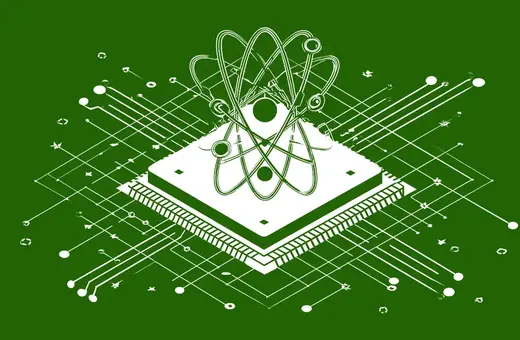One of the most famous names in environmentalism, James Lovelock is the originator of the Gaia Hypothesis, which sees the biosphere is a self-regulating entity. He is less well known as the inventor of both the microwave oven and the electron capture device. Here, he sits down with diplomat, academic and environmentalist Crispin Tickell to discuss the lone scientist, the “population problem” and why we shouldn’t try to air condition the whole of the Earth.
Crispin Tickell: I would argue that the work you’ve done in the past has been that of a lone scientist, and we all agree that lone scientists don’t operate in a void. Maybe you can say something about that?
James Lovelock: That's a good one to start with, yes. Lone scientists are not very usual. In America they're considered very dangerous and people walk on the other side of the street if you come down.
I was born in Letchworth Garden City, which I think was one of the first garden cities in the world. I'd been dumped there by my mother, who was a feminist, and I was brought up by my grandparents. I had to find my own way around, which becomes a way of life after a while.
I was very lucky in science. The first job I got, because my parents were quite poor and I had no way to go to university whatever, was as a lab technician to a firm of consultants. I think it was the luckiest event of my life. I learned more from them working in London than I ever could have been taught at any university.
The first thing that I learned, which most scientists are not taught nowadays as students, is how important it is to do your work well and produce the right answer, and the accurate answer, and to regard everything that you do seriously.
So the hands-on experience I got from these consultants stood me in good stead all my life. I really regarded any fudging or cheating in science as almost a sin against the Holy Ghost. This is something that loners have, I think, because many come from that sort of background.
Consider Michael Faraday, for example. He was an apprentice to a bookseller. He was almost innumerate and yet he became one of our greatest scientists, and was in many ways was the founder, intuitively, of electromagnetic theory, which of course led to James Clerk Maxwell, and to Einstein. And he didn't have any sort of education in modern terms. People like that were my heroes, and not surprisingly I finished off as a lone scientist.
But in between, in World War II, I was very lucky to be sent to the National Institute for Medical Research in London. I remember being interviewed by the director then, who happened to be President of the Royal Society, Sir Henry Dale. He said, "My boy, dismiss from your mind all thoughts that you're going to do any science here. It's wartime now and there's nothing but ad hoc jobs. You've got to find the answer, preferably yesterday."
I was a bit bemused by this at first; it was not what I expected. But I rapidly found that it was far better than anything I'd dreamt of. There were endless problems on almost every subject under the sun, and quite literally, if you could find the answer by yesterday, that was better than next week. So, it went on. It was such a lovely place to work, and I stayed with him until I reached the age of 40.





















Join the conversation